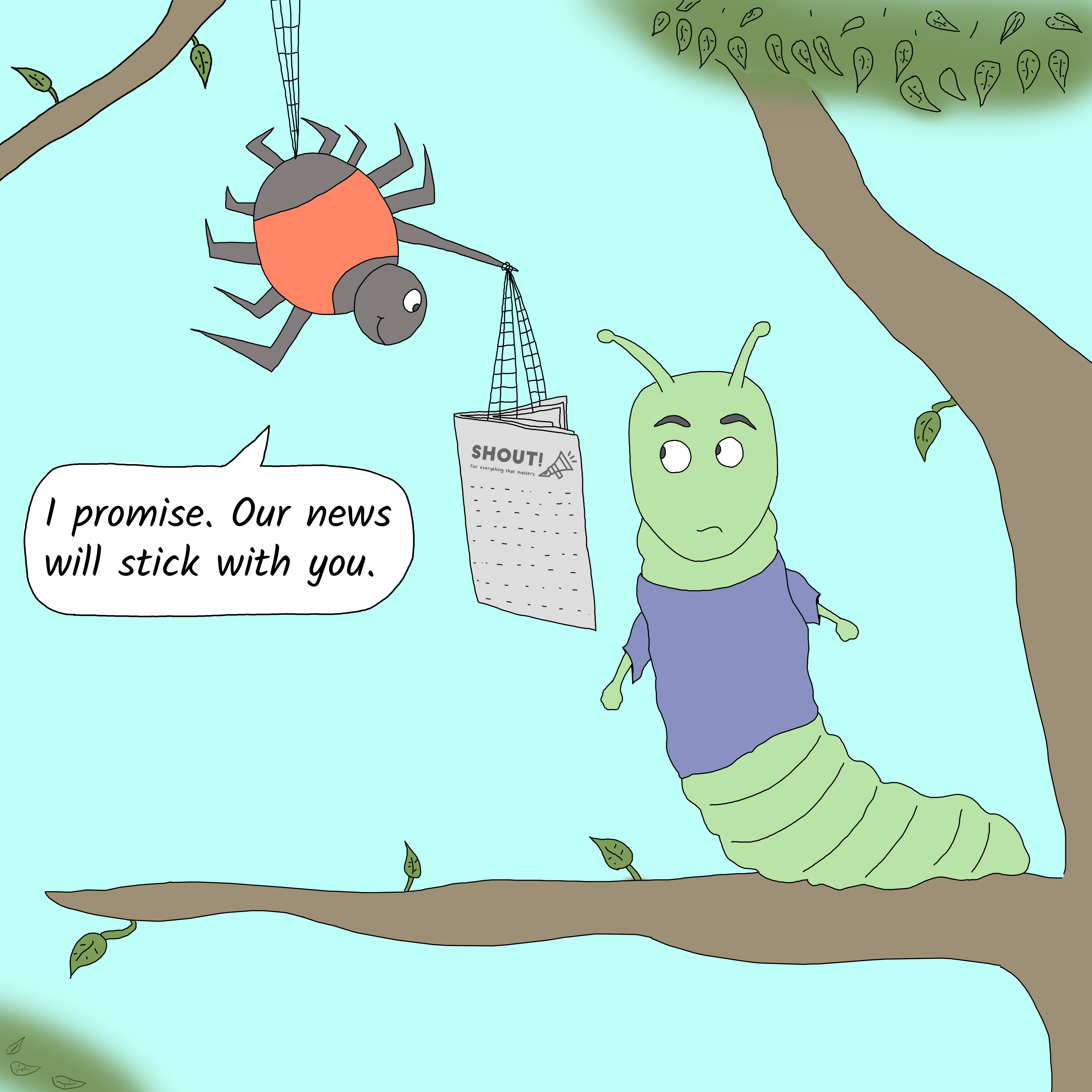I have lived in “The Mountain Shadow” for weeks.
We all want to sometimes – live in a shadow, turn invisible, stay in the dark without being disturbed.
It’s a space and a disappearance I will cherish for life.
And a mountain I will most certainly seek when the light is blinding and disorienting, disallowing the shadow I sometimes want to be.
I cannot review “The Mountain Shadow”. It is nobody’s business or capacity to. Shantaram is the story of a man whose experience all of mankind can feed off of. Hence, practically nobody belonging to that species can have the audacity to review the words he has written or the experiences he has amassed.
But I can illegibly scribble (and therefore, type) what I have learnt and everything I have felt at different stages and sets of pages of Shantaram’s mammoth journey.
(Proclaimer: This piece has taken time and patience. If you have neither, don’t bother reading it. Leave it for a day when you discover both.
Having said that, there’s no time like the present.
So, if you get to the end, sure, you’ll have a piece of one mind, but also your own.)
300-odd pages into an 870-something page book,
I don’t want this book to end.
I want to live in it forever, in the world of Lin, in love with Lin and in continued denial of the fact that I cannot.
If, in the words of Gregory David Roberts, our purpose is “the search for love”, I may have found it, in the pages of this book, in the poetry of its paragraphs, in the scathing and nourishing truths of its text.
Bombay has never been more beautiful nor more brutal than in Shantaram’s eyes and words. The city is dark, twisted and deceiving and then, somewhere, a streetlight shines, a fisherwoman smiles and it turns bright, supportive, true and hopeful.
Hope. That’s what comes gleaming out of every chapter. Human beings everywhere seem to have plenty of it. Lin is the embodiment of hope. When you’ve lost everything, it’s a pretty solid friend to hang onto, someone you can find just round the corner.
400-pages into this book,
I’m curious.
Just how much “pain is proof of life” before it isn’t. Before it’s just numbing, hardening, cold death.
For the very first time, I stop reading – not because I’m done but because I need more context.
I no longer want to write a reflection on solely “The Mountain Shadow”. I want to write what I’ve taken away from anything he’s EVER written or said.
I go back to his first: “Shantaram”. A pièce de résistance in prose and possibility.
Of the many videos I watched, there was one of him speaking at a conference where he, unintentionally, reveals the tragedy of being a fugitive writer:
He wrote novel after novel, novella after novella, possibly 10,000 hours of writing before he finally got to Shantaram. And he lost it all. On the run. Fleeing from the police one minute and the mafia in the next. And he would grieve. It took a long, long time to come to grips with the concept of having lost work.
But it wasn’t until “Shantaram” that it made sense to lose it.
A spiritual protection of sorts that prevented him from publishing “horrible stuff”.
Not quite a tragedy then. But brilliant insight into the mind of a man who saw pain as impetus to simply live on and do better.
And then when I was appeased, I went back to reading.
“Everything leaves a mark. Every blow echoes in the forest inside. Every injustice cuts a branch, and every loss is a fallen tree. The beautiful courage of us, the hope that defines our kind, is that we go on, no matter how much life wounds us. We walk. We face the sea and the wind and the salted truth of death, and we go on.”
500 pages into the book,
Lin’s life gradually goes from escape to tribute. The losses are hard, the absence of people: excruciating, but he transforms that grief into purpose, as though he’s living for those that no longer do.
“And every step we take, every breath we spend, every wish fulfilled is a duty to those lives and loves no longer graced, as we still are, with the spark and rhythm of the Source; the soul we loved, in their eyes.”
It is a paradox when you mark spirituality spilling out of a gangster’s words. But then again, everyone’s allowed to think deeply about their actions, no matter how grave, no matter how violent, no matter how indefensible.
It occurred to me then, that we’ve all done bad things – things we’re ashamed of, every day of our lives. But are those things the whole of who we are?
Probably not.
There is an extract bang in the middle of “The Mountain Shadow” that for me, encapsulates Gregory David Roberts’ voice.
If a shuffle of writings of multiple authors, in anonymity, on single pieces of paper, were placed on a table before me and this particular extract was written on one of them, it would be the one that I could put my finger on and definitively conclude was written by Greg.
Not because I’ve read it before, but because it radiates with his faith in life and the sheer force of his prose.
“Seriously. Do you ever have days when you simply want it to end?
All of it, at once?”
“Look, suicide and I are nodding acquaintances. But I’m more your till-the-last-dying-breath kind of guy.”
“But life can be so shit, sometimes,” she said, looking at me again.
“It’s all good, even the bad stuff. It’s all blood, flowing through the heart, and wonderful minutes, of wonderful things. I’m a writer. I have to believe in the power of love. Suicide isn’t an option.”
“Not for you.”
“And not for you. If you’re thinking about it, you can also put some thought into the fact that you don’t have the right to take your own life. Nobody does.”
“Why not? Rannveig like the runway asked, her eyes wide, innocent of the cruel, broken question she’d just asked.
“Think of it this way, Rannveig, does a deranged person have the right to kill a stranger?”
“No.”
“No. And when suicide is in your head, you’re the deranged person, and you’re also the stranger, in danger of the harm you might do to yourself. No matter how bad things get, you don’t have the right to kill the stranger that you might become, for a while, in your own life. The rest of your life would tell you, at that point, it’s not an option.”
The rest of your life would tell you, at that point, it’s not an option. There’s Greg – glorious, undefeatable and indefatigable.
On another piece of paper, print this and nail it into your wall:
“Who the hell am I to give advice, man?”, I said. “Do your best, Vinson. We mess up. We all mess up. We’ll probably never stop messing up. But if we just keep doing our best, sooner or later it’s gotta be good enough for somebody. Am I right?”
Greg tells me I’m a mess and that it’s okay to be one.
600 pages into the book,
“It was war. It was the failure of everything.”
There is tragedy and loss – large and loathsome.
“Is there a limit to the number of horrible things you can see, and experience, in any one life? Of course, there is: the limit is one, and none.”
All in the Island City.
And although inscrutable, there is simply no questioning its beauty.
“The mood (was still) upbeat. Bombay was a great, exciting place to live. Enough of this comparing ourselves to other places shit…Open your eyes, and see how wonderful this gigantic social experiment you’re living in is, and see how much real love keeps it going.”
Shantaram is in love with Bombay. As every Mumbaikar is. We love to hate it. We hate that we love it. But we do. And that’s why we stay. “Sometimes, people born in a place need to have someone wake its beauty for them.” And Shantaram does that, page after page. Even when the extent of its ruthlessness horrifies you, you don’t hate it enough to walk away from its “Shadow”. Because you love it more than you hate it.
The city is the smile that breaks your anger at it.
(Sorry to break that to you but it just is.)
When everything is absolutely and hopelessly out of control – his and probably, the world’s even, he sits down to write:
“Change is the blood of time. The world was changing, out of time, and moving beneath me like a whale, soaring for air. The chess pieces were moving themselves. Nothing was the same, and I knew that nothing would be better, for a while.”
In the midst of that hopelessness, he lives to love. And he loves bloody well.
He writes, “It’s the essence of what we are, and the mirror of what we’ll become. Love.”
To know a man who has loved as he has is to want to know a man who has.
It is not the end of the book yet, but I’m not a spoiler. If I were to read this before a masterpiece, this is just what I’d need, to know I want to pick it up and make it to the end.
But I will say this:
Some books, you never want to end.
I hate Greg for ending this one.
But I forgive him.
Because “the choice you make between hating and forgiving, can become the story of your life.”
“I should’ve shut up.”, he says.
“If I had three wishes, one of them would be to know when to shut up.”
I should shut up. At the very least, I can claim to have what Greg doesn’t.
Why, if you’ve lived a life as full as his, that’s one wish that simply should not be fulfilled.
Thank God he doesn’t know when to shut up.
It would’ve been an injustice to storytelling if he did.
Okay, shutting up.
(Gregory David Roberts’ name on the run was Lindsay Ford and later, Shantaram, in India.)
DISCLAIMER: The content on this website is merely an opinion and not intended to malign any religion, ethnic group, organisation, company or individual. Nothing contained herein shall to any extent substitute for the independent investigations and sound judgment of the reader. While we have made every attempt to ensure the accuracy and completeness of the content contained herein, no warranty or guarantee, express or implied, is given with respect to the same. The SHOUT! Network is neither liable nor responsible to any person or entity for any errors or omissions, or for any offense caused from such content.
In addition to the above, thoughts and opinions change from time to time… we consider this a necessary consequence of having an open mind. This website is intended to provide a semi-permanent point in time snapshot and manifestation of the various topics running around our brains, and as such any thoughts and opinions expressed within out-of-date posts may not be the same, or even similar, to those we may hold today.
Feel free to challenge us, disagree with us, or tell us we’re completely nuts in the comments section of each piece. The SHOUT! Network reserves the right to delete any comment for any reason whatsoever (abusive, profane, rude, or anonymous comments) – but do SHOUT! with us, if you will.















